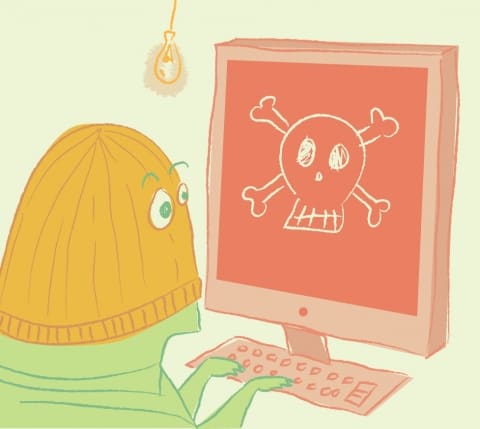While few may worry about cyber security, the recent suspected hack into the grade database at the University of Regina is a reminder that post-secondary institutions are not impervious to security threats.
The suspected hack was found because of irregularities in the grade database system. To prevent issues like this from occurring at the University of Saskatchewan, Information and Communication Technology Services and Support will be teaching students how to avoid any data issues through informative events.
The month of October is Cyber Security Awareness Month, which is dedicated to bringing attention to the threat of online data theft. Jon Coller, chief information security officer at the U of S, explains that the goal of CSAM is to inform the public of the importance of actively keeping their data secure and to give people the skills to protect their information.

“CSAM is a national awareness month focused on cyber security both [at] the workplace and at home,” Coller said. “[It’s about] what type of activity puts individuals at risk, and what individuals can and should be doing in their daily lives to protect themselves. Really, it’s about getting the information out to individuals for what their responsibilities are.”
The two upcoming events will focus on cyber security in post-secondary institutions. The first is a panel on cyber security at the U of S and the technological changes in the world that we need to respond to, which will take place at 2 p.m. on Oct. 20 in the Neatby-Timlin Theatre.
The second event is a 15-to-20-minute interactive Mobile Escape Room, which will be held in the Bowl on Oct. 25. Interested students can register online on the Usask website. Coller believes this event will be a good way to engage students in an often grim subject.
Jason Goertzen, a third-year computer science student, explains that cyber security, like standard household security systems, protects any valuable information that you have, like health data and banking information. Goertzen believes that protecting this information is important for students.
“You don’t want people accessing private information, because your data is important. You wouldn’t want someone rummaging around through your car, … your house or your doctor’s office, so the reason why you should care is because you have important information, whether you realize it or not, that shouldn’t just be out there,” Goertzen said.
Students may not know what they can do to protect their personal information, so Goertzen shares his number one tip on how students can keep their data secure.
“The most important thing you can do is to make sure your computer is running the most recent versions. Always make sure your stuff is up to date and make sure your applications are up to date, too. Yeah, it’s annoying, but it’s also important,” Goertzen said.
Goertzen also suggests that students make sure they don’t use the same password for everything, and that they do not download programs, such as Adobe Photoshop or Microsoft Office, from torrents on the internet.
The recent grade-hacking at the U of R is a reminder that all post-secondary schools could experience this, and it is important for students to be aware of that, as Goertzen explains.
“You have all these users who are also accessing the network, and if they aren’t updating their stuff, then someone can break into the network via them,” Goertzen said. “The main goal of a lot of attackers is to find and get access to that one weak point and use it to get into the grade server.”
Coller states that the U of S has extra protection put in place to avoid security breaches like the one that took place at the U of R and to keep their servers’ data secure.
“There are some items in our general administrative process that help us protect against grade changing. We do have additional levels of oversight any time marks are submitted. We have been slowly increasing our password requirements to make sure people aren’t using old or weak passwords,” Coller said.
All this information about data hacking may cause paranoia. But, Goertzen reassures students that, as long as they are aware of the steps they can take to protect themselves, there is no need to be worried.
“A beautiful thing about the internet is that you’re just a little blip, and you have to give people a reason to go for you, so as long as your operating system is up to date, you’re probably not worth the effort of someone attacking you,” Goertzen said.
Every student uses technology in their everyday life, so they should all be aware of cyber security, and Coller believes that the events coming up are a great way to learn more.
“Everything we’re doing is occurring online, so the risks are far more real than they’ve ever been,” Coller said. “The risks to your data, the risks to your reputation and the risks to your finances are real, and they’re dramatic. Knowing what you can do to protect yourself should be [a] basic life [skill] for every student.”
—
Lyndsay Afseth / Staff Writer
Graphic: Lesia Karalash / Graphics Editor